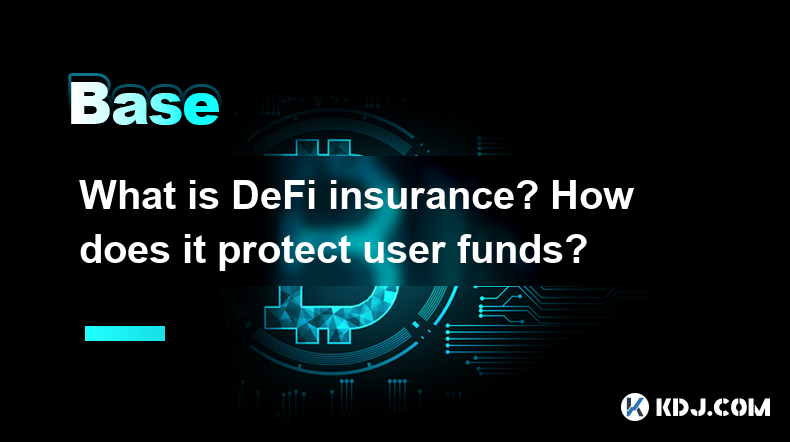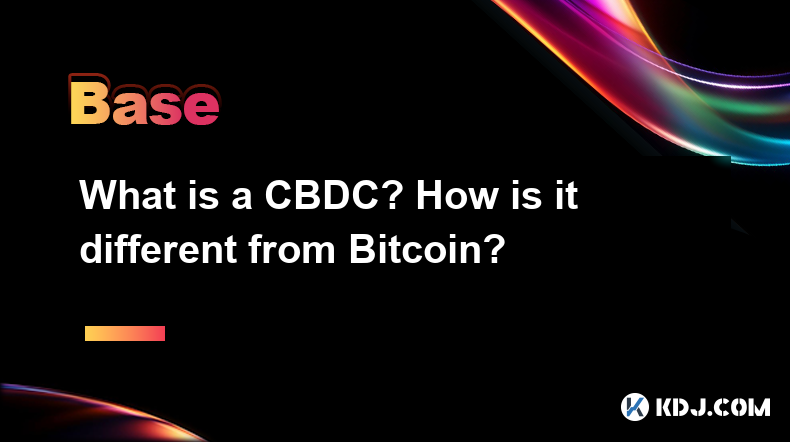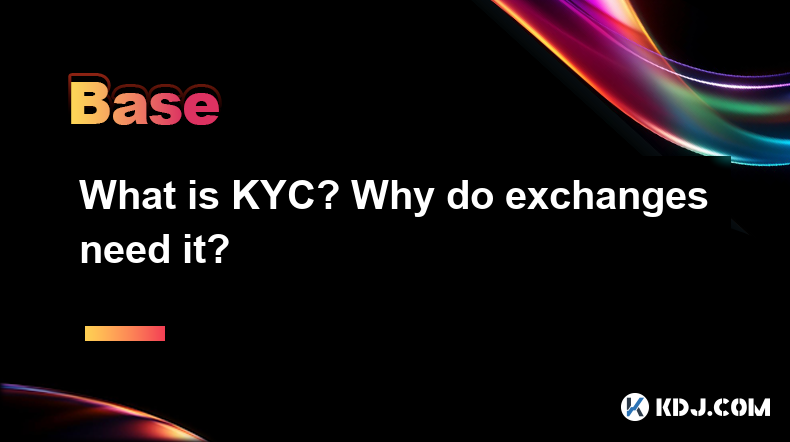-
 Bitcoin
Bitcoin $85,755.8002
1.64% -
 Ethereum
Ethereum $1,645.6905
1.27% -
 Tether USDt
Tether USDt $0.9998
0.02% -
 XRP
XRP $2.1577
1.11% -
 BNB
BNB $589.4257
0.30% -
 Solana
Solana $132.0805
-0.60% -
 USDC
USDC $1.0000
0.01% -
 TRON
TRON $0.2534
-1.14% -
 Dogecoin
Dogecoin $0.1610
-2.84% -
 Cardano
Cardano $0.6440
-0.39% -
 UNUS SED LEO
UNUS SED LEO $9.4349
0.54% -
 Chainlink
Chainlink $12.7648
0.18% -
 Avalanche
Avalanche $20.0359
0.31% -
 Stellar
Stellar $0.2412
-0.10% -
 Toncoin
Toncoin $2.9297
3.26% -
 Sui
Sui $2.2079
-2.65% -
 Hedera
Hedera $0.1679
-0.55% -
 Shiba Inu
Shiba Inu $0.0...01200
-2.02% -
 Bitcoin Cash
Bitcoin Cash $333.3530
-3.38% -
 Litecoin
Litecoin $78.5280
0.39% -
 Polkadot
Polkadot $3.6858
-0.63% -
 Hyperliquid
Hyperliquid $16.2142
3.18% -
 Dai
Dai $0.9998
-0.01% -
 Bitget Token
Bitget Token $4.3249
0.75% -
 Pi
Pi $0.7441
-1.29% -
 Ethena USDe
Ethena USDe $0.9990
0.02% -
 Monero
Monero $212.5820
2.77% -
 Uniswap
Uniswap $5.4137
-0.50% -
 Pepe
Pepe $0.0...07502
0.93% -
 OKB
OKB $52.3495
-1.44%
What is a qualified custodian? What are the requirements for institutional custody?
Qualified custodians safeguard crypto assets with robust security, regulatory compliance, and insurance, ensuring trust and facilitating institutional investment.
Apr 13, 2025 at 10:49 pm

A qualified custodian is a financial institution that meets specific regulatory standards to hold and safeguard client assets, including cryptocurrencies. These custodians are typically banks, trust companies, or other entities that are subject to regulatory oversight. The primary role of a qualified custodian is to ensure the safety and security of client assets, providing a layer of protection against fraud, theft, and mismanagement.
In the context of cryptocurrencies, a qualified custodian must have robust security measures in place to protect digital assets. This includes cold storage solutions, multi-signature wallets, and advanced encryption techniques. Additionally, qualified custodians are required to maintain detailed records of all transactions and to provide regular reports to clients and regulatory bodies.
Requirements for Institutional Custody
Institutional custody of cryptocurrencies involves a set of stringent requirements that must be met to ensure the safety and compliance of the assets. These requirements are designed to protect institutional investors, such as hedge funds, pension funds, and other large financial entities, from the risks associated with digital asset management.
Regulatory Compliance is a critical aspect of institutional custody. Custodians must adhere to the regulations set forth by financial authorities in their jurisdiction. This includes obtaining necessary licenses and undergoing regular audits to ensure compliance with anti-money laundering (AML) and know-your-customer (KYC) regulations.
Security Measures are paramount in institutional custody. Custodians must implement state-of-the-art security protocols to protect against cyber threats. This includes the use of cold storage for the majority of assets, where digital assets are stored offline and are thus less vulnerable to hacking attempts. Additionally, custodians should employ multi-signature wallets, which require multiple signatures to authorize a transaction, adding an extra layer of security.
Insurance Coverage is another essential requirement for institutional custody. Custodians must have comprehensive insurance policies in place to cover potential losses due to theft, hacking, or other unforeseen events. This provides an additional layer of protection for institutional investors, ensuring that their assets are safeguarded even in the event of a security breach.
Transparency and Reporting are crucial for maintaining trust with institutional clients. Qualified custodians must provide regular, detailed reports on the status of client assets, including transaction histories and current balances. These reports should be easily accessible and understandable, allowing clients to monitor their investments effectively.
Segregation of Assets is a requirement that ensures client assets are kept separate from the custodian's own assets. This segregation helps to prevent the misuse of client funds and provides an additional layer of protection in the event of the custodian's insolvency.
The Role of Qualified Custodians in the Cryptocurrency Ecosystem
Qualified custodians play a vital role in the cryptocurrency ecosystem by providing a secure and compliant environment for the storage and management of digital assets. They help to bridge the gap between traditional finance and the burgeoning world of cryptocurrencies, offering institutional investors the confidence they need to participate in this new asset class.
Trust and Confidence are essential for the widespread adoption of cryptocurrencies by institutional investors. Qualified custodians help to build this trust by adhering to strict regulatory standards and implementing robust security measures. This allows institutional investors to feel confident that their assets are in safe hands.
Facilitating Institutional Investment is another key role of qualified custodians. By providing a secure and compliant platform for the custody of digital assets, these institutions enable hedge funds, pension funds, and other large investors to enter the cryptocurrency market. This influx of institutional capital can help to stabilize and legitimize the market, driving further growth and adoption.
Compliance with Regulatory Standards is a critical function of qualified custodians. They must navigate the complex regulatory landscape surrounding cryptocurrencies, ensuring that they meet all necessary requirements to operate legally. This includes obtaining licenses, undergoing audits, and maintaining detailed records of all transactions.
How to Choose a Qualified Custodian
Choosing the right qualified custodian for your cryptocurrency assets is a crucial decision that requires careful consideration. Here are some key factors to consider when selecting a custodian:
Reputation and Track Record: Look for custodians with a strong reputation and a proven track record of security and reliability. Research their history and read reviews from other clients to gauge their performance.
Security Measures: Evaluate the custodian's security protocols, including their use of cold storage, multi-signature wallets, and encryption techniques. Ensure that they have robust measures in place to protect your assets.
Regulatory Compliance: Verify that the custodian is fully compliant with all relevant regulations in your jurisdiction. This includes checking for necessary licenses and ensuring that they undergo regular audits.
Insurance Coverage: Check the custodian's insurance policies to ensure that they provide adequate coverage for potential losses. This can provide an additional layer of protection for your assets.
Transparency and Reporting: Assess the custodian's reporting capabilities to ensure that they provide regular, detailed reports on the status of your assets. This transparency is crucial for monitoring your investments effectively.
Fees and Costs: Consider the fees and costs associated with using the custodian's services. Compare these costs with other custodians to ensure that you are getting a competitive rate.
The Process of Setting Up Institutional Custody
Setting up institutional custody for cryptocurrencies involves several steps to ensure that all requirements are met and that the assets are securely stored. Here is a detailed guide on how to set up institutional custody:
Research and Selection: Begin by researching and selecting a qualified custodian that meets your needs. Consider factors such as reputation, security measures, regulatory compliance, and insurance coverage.
Due Diligence: Conduct thorough due diligence on the selected custodian. This includes reviewing their security protocols, insurance policies, and regulatory compliance. You may also want to request references from other clients to gauge their satisfaction with the custodian's services.
Account Setup: Once you have selected a custodian, you will need to set up an account. This typically involves completing an application form and providing necessary documentation, such as proof of identity and business registration.
Asset Transfer: After your account is set up, you will need to transfer your cryptocurrency assets to the custodian. This involves generating a deposit address from the custodian and sending your assets to that address. Ensure that you follow the custodian's instructions carefully to avoid any errors.
Verification and Confirmation: Once the assets are transferred, the custodian will verify the transaction and confirm that the assets are securely stored. You should receive a confirmation from the custodian, along with any necessary documentation.
Ongoing Monitoring: After setting up institutional custody, it is important to monitor your assets regularly. This includes reviewing the custodian's reports and ensuring that your assets are being managed according to your expectations.
Frequently Asked Questions
Q: Can a qualified custodian hold assets other than cryptocurrencies?
A: Yes, qualified custodians can hold a variety of assets, including traditional financial instruments such as stocks, bonds, and commodities. However, their role in the cryptocurrency ecosystem is particularly important due to the unique security and regulatory challenges associated with digital assets.
Q: How do qualified custodians ensure the privacy of their clients?
A: Qualified custodians implement strict privacy policies and use advanced encryption techniques to protect client data. They also adhere to data protection regulations, such as the General Data Protection Regulation (GDPR) in the European Union, to ensure that client information is kept confidential.
Q: What happens if a qualified custodian goes bankrupt?
A: In the event of a qualified custodian's bankruptcy, client assets are typically protected through the segregation of assets. This means that client assets are kept separate from the custodian's own assets, reducing the risk of loss. Additionally, insurance policies may provide further protection against potential losses.
Q: Are there any international standards for qualified custodians?
A: While there are no universal international standards for qualified custodians, many countries have their own regulatory frameworks that custodians must adhere to. Some international organizations, such as the Financial Action Task Force (FATF), provide guidelines and recommendations for the regulation of financial institutions, including custodians.
Disclaimer:info@kdj.com
The information provided is not trading advice. kdj.com does not assume any responsibility for any investments made based on the information provided in this article. Cryptocurrencies are highly volatile and it is highly recommended that you invest with caution after thorough research!
If you believe that the content used on this website infringes your copyright, please contact us immediately (info@kdj.com) and we will delete it promptly.
- BlockDAG's Keynote 3 Reveals Mainnet Launch Plans! SHIB & TON Whale Activity Surges
- 2025-04-15 14:00:12
- The April Shake-Up: Exploring Opportunities in the Altcoin Market
- 2025-04-15 14:00:12
- “The stock market is a device for transferring money from the impatient to the patient.”
- 2025-04-15 13:55:13
- 4 Coins to Watch in the Race to $1 by 2025
- 2025-04-15 13:55:13
- #Binance **⚠️ P2P Scam Warning**
- 2025-04-15 13:50:12
- Why This Utility Token Going Viral More Than Meme; Dogecoin, Shiba Inu & Pepe Coin?
- 2025-04-15 13:50:12
Related knowledge

What is DeFi insurance? How does it protect user funds?
Apr 15,2025 at 02:22pm
What is DeFi insurance? How does it protect user funds? Decentralized Finance (DeFi) has revolutionized the way users interact with financial services on the blockchain. However, with the rise of DeFi, the need for robust security measures has become paramount. DeFi insurance is a critical component of this ecosystem, designed to protect users against p...

What is a CBDC? How is it different from Bitcoin?
Apr 15,2025 at 01:49pm
A Central Bank Digital Currency (CBDC) represents a digital form of a country's fiat currency, issued and regulated by its central bank. Unlike traditional physical currencies, CBDCs exist purely in digital form, offering a new way for governments to manage their monetary systems. CBDCs are designed to provide the benefits of digital currencies while ma...

What is KYC? Why do exchanges need it?
Apr 15,2025 at 02:01pm
KYC, or Know Your Customer, is a process used by businesses, including cryptocurrency exchanges, to verify the identity of their clients. The primary goal of KYC is to prevent illegal activities such as money laundering, fraud, and terrorist financing. By implementing KYC procedures, exchanges can ensure compliance with regulatory requirements and maint...

How to buy Dogecoin in China?
Apr 14,2025 at 04:35pm
How to buy Dogecoin in China (DOGE) Dogecoin is a decentralized digital currency known for its iconic dog pattern. Here are the detailed steps on how to buy Dogecoin in China. step 1. Register a digital currency exchange account First, you need to register an account on a digital currency trading platform regulated by China. It is recommended to choose ...

Ouyi Exchange web version registration portal
Apr 15,2025 at 01:28pm
Ouyi Exchange web version registration guide: Get started quickly How to create an account on the Ouyi Exchange web version? The process of creating an Ouyi Exchange web version account is very simple, just follow the following steps: Browse to the official website of Ouyi Exchange. Click the "Register" option in the upper right corner of the ...

What is Delayed Encryption technology?
Apr 11,2025 at 10:42pm
What is Delayed Encryption Technology? In the world of cryptocurrencies, security is paramount. One of the innovative solutions to enhance the security of digital transactions is Delayed Encryption Technology. This technology introduces a layer of security by encrypting data with a time delay, ensuring that the information remains secure until a specifi...

What is DeFi insurance? How does it protect user funds?
Apr 15,2025 at 02:22pm
What is DeFi insurance? How does it protect user funds? Decentralized Finance (DeFi) has revolutionized the way users interact with financial services on the blockchain. However, with the rise of DeFi, the need for robust security measures has become paramount. DeFi insurance is a critical component of this ecosystem, designed to protect users against p...

What is a CBDC? How is it different from Bitcoin?
Apr 15,2025 at 01:49pm
A Central Bank Digital Currency (CBDC) represents a digital form of a country's fiat currency, issued and regulated by its central bank. Unlike traditional physical currencies, CBDCs exist purely in digital form, offering a new way for governments to manage their monetary systems. CBDCs are designed to provide the benefits of digital currencies while ma...

What is KYC? Why do exchanges need it?
Apr 15,2025 at 02:01pm
KYC, or Know Your Customer, is a process used by businesses, including cryptocurrency exchanges, to verify the identity of their clients. The primary goal of KYC is to prevent illegal activities such as money laundering, fraud, and terrorist financing. By implementing KYC procedures, exchanges can ensure compliance with regulatory requirements and maint...

How to buy Dogecoin in China?
Apr 14,2025 at 04:35pm
How to buy Dogecoin in China (DOGE) Dogecoin is a decentralized digital currency known for its iconic dog pattern. Here are the detailed steps on how to buy Dogecoin in China. step 1. Register a digital currency exchange account First, you need to register an account on a digital currency trading platform regulated by China. It is recommended to choose ...

Ouyi Exchange web version registration portal
Apr 15,2025 at 01:28pm
Ouyi Exchange web version registration guide: Get started quickly How to create an account on the Ouyi Exchange web version? The process of creating an Ouyi Exchange web version account is very simple, just follow the following steps: Browse to the official website of Ouyi Exchange. Click the "Register" option in the upper right corner of the ...

What is Delayed Encryption technology?
Apr 11,2025 at 10:42pm
What is Delayed Encryption Technology? In the world of cryptocurrencies, security is paramount. One of the innovative solutions to enhance the security of digital transactions is Delayed Encryption Technology. This technology introduces a layer of security by encrypting data with a time delay, ensuring that the information remains secure until a specifi...
See all articles























































































